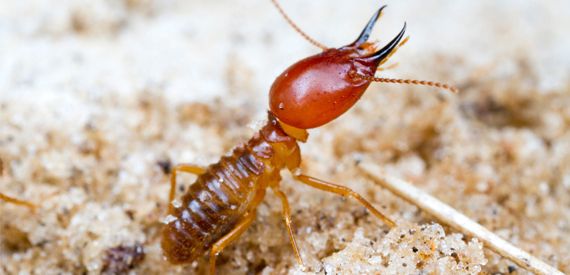Budget Friendly Ant Control Solutions: Maintain Your Room Ant-Free
Wiki Article
Environmental Influence of Parasite Control: Balancing Effectiveness With Sustainability
The environmental effect of pest control is an essential concern that requires a delicate balance in between accomplishing effectiveness in managing insects and making sure sustainability of our environments. As we strive to protect our crops, homes, and health and wellness from the threats postured by insects, the methods we employ can inadvertently hurt the environment. From the usage of dangerous chemicals that seep right into our soil and water to the unplanned repercussions on non-target varieties, the repercussions of standard insect control techniques are significant. There are arising methods that provide hope for an extra sustainable method to pest administration. These services not just aim to deal with the prompt parasite issues yet also think about the lasting health of our planet.Unsafe Chemicals in Pest Control
The usage of hazardous chemicals in insect control positions considerable ecological and wellness threats that call for cautious consideration and mitigation techniques. Herbicides, insecticides, and pesticides are frequently made use of to get rid of insects, however their prevalent application can bring about unintended effects. These chemicals can infect dirt, water resources, and the air, influencing not just the targeted insects but also helpful bugs, wildlife, and humans.
To resolve these risks, incorporated parasite monitoring (IPM) strategies are being advertised as a much more lasting option. IPM involves a combination of methods such as organic control, environment adjustment, and the targeted use chemicals as a last option (ant control durham nc). By adopting a holistic strategy to pest control, we can lessen the ecological and health influences connected with hazardous chemicals while effectively taking care of pest populaces
Influence On Non-Target Species
Thinking about the unintentional consequences of parasite control techniques, the effect on non-target types is an important aspect that calls for detailed examination. While pest control procedures aim to target specific bugs, other microorganisms in the ecosystem may be inadvertently impacted. Non-target species, consisting of useful insects, birds, creatures, and even plants, can endure indirect or straight injury from pesticide applications or organic control methods.Pesticides developed to battle a particular bug pest may harm pollinators like bees or natural killers such as ladybugs. Organic control agents, if not species-specific, can pose risks to unintentional targets, interfering with the eco-friendly equilibrium.
To reduce the impact on non-target species, integrated insect management (IPM) techniques that emphasize an alternative method to pest control are recommended. These methods prioritize using eco friendly methods, lessening damage to valuable microorganisms while successfully handling pest populations. Performing thorough threat evaluations and checking the results of parasite control initiatives are essential action in guarding non-target types and promoting overall community health.
Dirt and Water Contamination
Unintentional ecological consequences of bug control approaches prolong past influencing non-target species, with considerable effects for soil and water contamination - ant control. Chemicals, herbicides, and chemical fertilizers used in bug control can seep right into the soil and infect groundwater, presenting a hazard to both terrestrial and aquatic ecosystems.Water contamination is another essential concern related to insect control methods. Drainage from agricultural areas treated with chemicals can bring these chemicals right into nearby water bodies, affecting water microorganisms and water top quality. Impurities in water resources can have far-ranging consequences, affecting not just marine life yet additionally human wellness with the usage of infected water or aquatic microorganisms. To mitigate dirt and water contamination from parasite control tasks, integrated bug monitoring methods that prioritize sustainability and lessen chemical inputs are critical.
Air Air Pollution From Chemical Usage
Exposure to air-borne pesticides throughout agricultural applications postures a considerable concern for air contamination control steps. In addition, pesticide drift, where chemicals are carried by the wind to unexpected areas, can lead to the contamination of close-by ecosystems and water bodies.
Techniques for Lasting Parasite Control
In the realm of agricultural practices, implementing lasting bug control approaches is paramount for maintaining environmental equilibrium and securing plant yields. Sustainable pest control emphasizes using eco-friendly techniques to handle parasite populaces properly while minimizing harm to non-target organisms and communities. Integrated Bug Administration (IPM) is a commonly embraced method that integrates biological, cultural, physical, and chemical control methods to achieve lasting insect administration services.Crop turning and diversification are also effective techniques to interfere with pest life cycles and develop much less desirable conditions for insects to grow. Ultimately, by integrating these lasting insect control approaches, farmers can achieve an equilibrium between pest monitoring effectiveness and ecological stewardship.
Conclusion
In final thought, the environmental effect of parasite control methods need to be thoroughly taken into consideration to stabilize effectiveness with sustainability. Unsafe chemicals used in bug control can lead to soil and water contamination, air pollution, and injury non-target varieties - ant control. It is crucial to carry out sustainable parasite control strategies to lessen these adverse effects on the environment and promote a healthier environment for future generationsant control hickory nc By taking on an alternative method to pest control, we can lessen the ecological and wellness impacts associated with damaging chemicals while successfully taking care of pest populaces.

To mitigate the air contamination triggered by chemical use, it is vital to take on integrated pest administration strategies that prioritize the usage of non-chemical pest control techniques, such as crop rotation, all-natural killers, and resistant crop selections. Sustainable insect control stresses the use of eco friendly techniques to take care of pest populations successfully while minimizing damage to non-target microorganisms and communities. Integrated Parasite Monitoring (IPM) is a widely embraced technique that incorporates organic, cultural, physical, and chemical control methods to achieve long-lasting bug monitoring solutions.
Report this wiki page